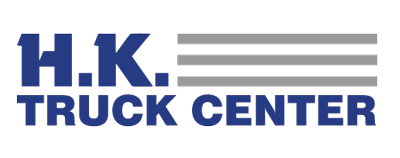
Fleet Manager Challenges Keep Expanding
The job of a fleet manager keeps getting more complex and more challenging. Today, fleet managers face supply chain issues that are forcing fleets to extend the lifecycle of existing vehicles due to, not just a lack of new trucks, but a shortage of components and parts as well. There is a change in work habits precipitated by the pandemic. There is the “great resignation” that has exacerbated an already disruptive shortage of drivers, technicians, and employees overall. Add all of these challenges to an already complex job and you can understand why fleet managers feel under increasing pressure.
A fleet manager’s job description really doesn’t describe the job.
Boise State University states the traditional fleet manager job standard as being “responsible for planning, directing, managing, coordinating and supervising the programs for acquisition, assignment, utilization, maintenance, repair, replacement and disposal of fleet vehicles.”
But the job entails far more than that; the job site, Indeed, has an updated generic description of a fleet manager’s responsibilities. The ones in boldface are above and beyond those described above.
- “Purchasing vehicles to expand and/or enhance the fleet
- Scheduling regular maintenance on all vehicles
- Ordering urgent or emergency repairs as needed
- Establishing efficient routes and transportation schedules
- Coordinating Drivers and on-staff maintenance professionals when setting employee schedules
- Managing licensure and registration
- Ensuring all fleet members have proper licensure and up-to-date training
- Monitoring Drivers to ensure adherence to schedules and proper driving practices
- Searching for, hiring, and training new Drivers
- Providing reports to management on budgeting, schedules, maintenance and fleet progress
- Developing methods to decrease cost and improve efficiency”
The Indeed posting notes that overall, as in the Boise description, a fleet manager’s goal is to monitor, maintain, and improve company’s transportation processes. Yet even that doesn’t encompass the many, many things that a fleet manager, in today’s world, needs to know and, in many cases, be responsible for. From purchasing to HR to logistics to maintenance to legal issues (regulations and compliance) to safety protocols to technology; all need to be part of a fleet manager’s knowledge and practice. Even for those that use third parties for many of the tasks, it is still the fleet manager’s job to make sure everything works well and that every vehicle is safe and road-ready and every driver is ready to get behind the wheel.
How much pressure do fleet managers face?
As an industry, we place a huge emphasis on safety; the oversight of that safety is the responsibility of the fleet manager. This, in addition to everything else, has presented ongoing challenges. A recent article published in HDT Truckinginfo details the results of a survey, conducted by J. J. Keller Center for Market Insights. The survey mainly addresses the safety challenges facing fleet managers and finds 3 specific areas that continue to challenge them.
FMCSA Compliance – When your job makes you responsible for ensuring that every vehicle and driver in your fleet meets regulatory standards, that is a daunting undertaking. Non-compliance not only leads to less safety; it can also mean substantial fines for the company. As the article notes, “In 2021, FMCSA collected $18.4 million in fines. The average settlement was $6,626.” To do their job properly, fleet managers need to have access to all files and that those files are accurate; they need to have full visibility into where every vehicle and driver is at all times and if that driver is within HOS limits; and they need to keep up with ever-changing regulations. Fortunately, there are fleet management systems and other tech advancements that can help with this.
Leadership Buy-in – In the survey, the top response to answering what is the most important issue in overall safety is “Leadership consistently showing that safety is important.” That response drew 51%, far more than any other. However, the last line of the paragraph above relates to the technology that can help fleet managers do their jobs more efficiently and that technology costs money. That can make leadership balk at the outlay, so fleet managers need to show how this technology can mitigate risk, increase safety, all with an impressive ROI. Even leaders that don’t comprehend the real need for new technology react well to an improved bottom line.
Ongoing Driver Oversight – Fleet managers aren’t in the vehicle with the driver so there are limits to the oversight necessary. The survey notes that “Avoiding distracted driving maintained the top spot for the second year as the most critical skill fleet managers want their drivers to have.” This necessitates meetings and training sessions with drivers to constantly stress this issue along with others, including how to avoid injuries, understanding how FMCSA regulations apply to them, proper compliance with HOS and ELD use, and how to safely operate the vehicle.
Technology plays a key role in answering challenges
It’s clear that although the fleet manager’s job gets more complex, technology is supplying solutions that will help them do the job more efficiently and with less stress. A March 2022 Forbes article discusses the opportunities that can lead to success through the use of technology. “By leading with technology to improve incident prevention within commercial vehicles, fleet managers can more reliably do their jobs.”
The article notes that, in addition to telematics and ADAS technology, the strategic deployment of artificial intelligence (AI) can play an important part going into the future, especially when it comes to predictive analytics. Being able to predict maintenance needs before problems occur or being able to identify specific driver issues before accidents occur, will ultimately lead to a better bottom line.
Fleet managers need to be acknowledged for the difficult and complex job they do. From weather-related delays to supply chain issues to ongoing regulatory changes to employee shortages, fleet managers have many more challenges than most people understand. They deserve our appreciation and a chance to deploy technology that will help them do their jobs better.

About Jane Clark
Jane Clark is Vice President of Member Services for NationaLease. Before joining the full service truck leasing organization, she served in executive positions with some of the nation’s top staffing and recruitment agencies.




